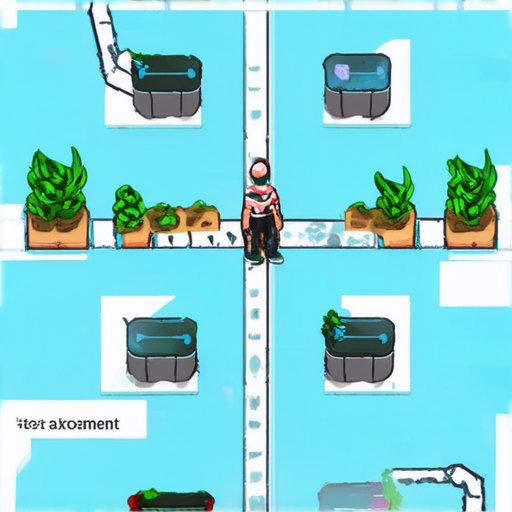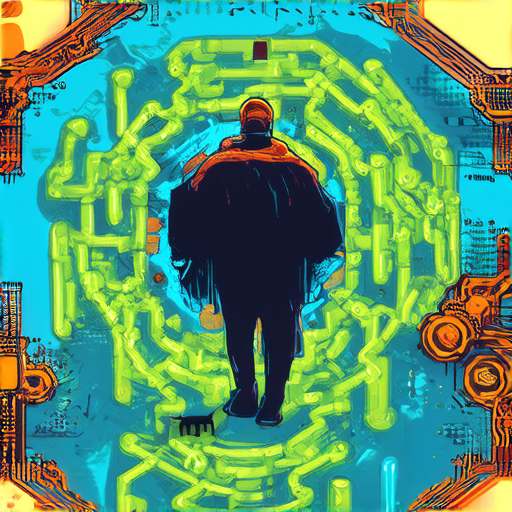For aspiring game developers, breaking into the competitive gaming industry can seem daunting, but with the right training and education, the possibilities are endless. game design courses offer a comprehensive foundation in the skills required to succeed in this exciting field, from understanding game mechanics and level design to creating immersive narratives and user experiences.

Choosing the Best Course for Game Designers
To become a successful game designer, selecting the right course is crucial.
- Bachelor’s Degree in Computer Science and Game Development: A well-rounded program that covers computer science fundamentals, game development principles, and software engineering skills.
- Master’s Degree in Game Development: A graduate-level program that delves deeper into advanced game development topics, such as artificial intelligence, physics engines, and game design patterns.
- Certificate Programs in Game Development: Short-term programs that focus on specific aspects of game development, such as game design, programming, or animation.
- Online Courses and Tutorials: Self-paced learning options that cover various game development topics, from beginner to advanced levels.
When choosing a course, consider factors such as curriculum, faculty expertise, industry connections, and alumni success.
- Look for courses with a strong focus on game development principles, software engineering, and project-based learning.
- Check if the course has partnerships with game development studios or provides opportunities for internships and job placements.
- Evaluate the course’s reputation, accreditation, and alumni network.
- Consider online courses and tutorials that offer flexible scheduling and self-paced learning.
Ultimately, the best course for game designers is one that aligns with their career goals, interests, and learning style.
Top Game Development Schools in India:
- Sathyabama Institute of Science and Technology
- Vellore Institute of Technology
- Amrita University
- Birla Institute of Technology and Science
Additional Resources:
Is Game Design Career Worth It?
A career in game design can be a dream come true for those who are passionate about creating immersive experiences for players.
- Pros:
- Opportunity to express creativity and bring ideas to life
- Potential for high earning potential, especially in the AAA game industry
- Constant evolution and innovation in the field, ensuring a challenging and exciting career path
- Chance to collaborate with talented individuals from various disciplines, fostering teamwork and communication skills
- Cons:
- Long working hours, often exceeding 40 hours per week
- High stress levels due to tight deadlines, budget constraints, and player expectations
- Risk of job insecurity, particularly in the indie game market
- Necessity to stay up-to-date with the latest technologies, software, and design trends
Game Design Career Paths
There are several career paths available in the game design industry, catering to diverse interests and skill sets:
- Game Designer: Responsible for creating game mechanics, level design, and overall gameplay experience
- Level Designer: Focuses on crafting individual levels, ensuring a cohesive and engaging narrative
- Concept Artist: Develops visual concepts, characters, and environments that bring the game world to life
- UX/UI Designer: Ensures intuitive and user-friendly interfaces, enhancing the overall gaming experience
- Producer: Oversees project management, budgeting, and scheduling, ensuring timely delivery and quality standards
Breaking into the Industry
To succeed in the game design industry, consider the following steps:
- Build a strong portfolio: Showcase your skills and experience through personal projects, collaborations, or freelance work
- Network and join communities: Attend industry events, conferences, and online forums to connect with professionals and stay updated on industry trends
- Stay adaptable and open-minded: Be willing to learn new skills, take feedback, and adjust to changing project requirements
- Consider internships or entry-level positions: Gain hands-on experience and make valuable connections in the industry
Conclusion
A career in game design can be rewarding and challenging, offering opportunities for creative expression, collaboration, and growth.
While it may come with its share of drawbacks, such as long working hours and job insecurity, the potential benefits far outweigh the risks for those passionate about game design.
By understanding the pros and cons, exploring different career paths, and taking proactive steps to break into the industry, you can set yourself up for success in this exciting and dynamic field.

What Do I Study to Become a Game Designer?
To become a game designer, you’ll need a solid foundation in various skills and knowledge areas.
-
Game Design Fundamentals
- Understand game mechanics, level design, and player psychology.
- Learn about game genres, target audiences, and market trends.
-
Art and Animation
- Develop skills in drawing, painting, and digital art.
- Learn 2D and 3D animation principles and software.
-
Programming and Software Development
- Study programming languages like C++, Java, or Python.
- Learn game engines like Unity or Unreal Engine.
-
Storytelling and Writing
- Develop your writing skills for game narratives and dialogue.
- Learn about character development, plot structures, and pacing.
-
Game Development Tools and Technologies
- Familiarize yourself with game development software like Maya, Blender, or Adobe Creative Cloud.
- Learn about version control systems like Git.
-
Collaboration and Communication
- Develop strong teamwork and communication skills.
- Learn about project management and Agile methodologies.
While formal education can provide a solid foundation, many successful game designers are self-taught and learn through online courses, workshops, and hands-on experience.
As a game designer, you’ll need to stay up-to-date with industry trends, technologies, and best practices. Continuously learning and expanding your skill set will help you succeed in this dynamic and creative field.

Duration of a Game Designer Course
The duration of a game designer course varies depending on the institution and program.
-
Bachelor’s Degree Programs:
- A typical bachelor’s degree in game design takes four years to complete.
- Courses may cover topics such as game mechanics, level design, and game programming.
- Graduates can pursue careers as game designers, producers, or artists.
-
Certificate and Diploma Programs:
- Certificate programs in game design usually last several months to a year.
- Diploma programs take around two years to complete.
- These programs often focus on specific aspects of game design, such as game development or animation.
-
Online Courses and Workshops:
- Online courses and workshops can range from a few weeks to several months in length.
- They often cover specialized topics, such as game engines, 3D modeling, or game testing.
- These courses are ideal for those who want to learn specific skills or gain hands-on experience.
When choosing a game design course, consider factors such as curriculum, faculty expertise, and alumni success.
Research institutions and programs thoroughly to find the best fit for your career goals and learning style.
Additionally, look into internships, mentorship opportunities, and networking events to supplement your education and gain industry connections.
By investing time and effort into a well-rounded game design education, you’ll be better prepared to succeed in this exciting and rapidly evolving field.
Is Game Design High Paying?
The salary of a game designer can vary greatly depending on factors such as location, experience, and type of game being developed.
- Bachelor’s Degree: According to recent studies, 74% of video game designers hold a bachelor’s degree, which can lead to an average salary of $103,165 per year.
- Masters Degree: Earning a master’s degree can increase earning potential to $121,628 per year, making it a worthwhile investment for those looking to advance their careers.
- Doctorate: A doctoral degree can further boost earning potential to $122,676 per year, demonstrating the significant impact education has on career advancement.
While salaries may vary, game design remains a lucrative field, with many opportunities for growth and advancement.
Indie Game Development Salaries
For those interested in indie game development, salaries can be slightly lower due to smaller team sizes and budgets.
- Junior Game Developer: Junior game developers can expect to earn around $60,000-$80,000 per year, depending on experience and skills.
- Senior Game Developer: Senior game developers can earn upwards of $100,000 per year, with experience and leadership roles commanding higher salaries.
Conclusion
In conclusion, game design can be a high-paying career, with salaries varying based on factors such as education, experience, and type of game being developed.
With the rise of indie game development, there are now more opportunities than ever for aspiring game designers to turn their passion into a successful career.

Cost of a Game Design Degree
The cost of a game design degree can vary significantly depending on several factors, including the institution, location, and type of degree.
-
Tuition Fees:
According to various sources, the per-credit costs for an online game design bachelor’s degree typically range from $320 to $645.
-
Total Tuition:
Students can expect to pay between $38,000 and $77,000 in total tuition for a four-year program.
-
In-State vs. Out-of-State:
Tuition fees may differ for in-state and out-of-state students, with out-of-state students often paying higher rates.
-
Scholarships and Financial Aid:
Many institutions offer scholarships and financial aid packages to help offset the cost of tuition.
-
Online vs. On-Campus:
Online programs may offer more flexibility and lower costs compared to traditional on-campus programs.
When considering the cost of a game design degree, it’s essential to factor in additional expenses such as textbooks, software, and equipment.
As a game developer, investing in a high-quality education can lead to better job prospects and increased earning potential.
By understanding the costs associated with a game design degree, you can make informed decisions about your educational path and career goals.




0 Comments